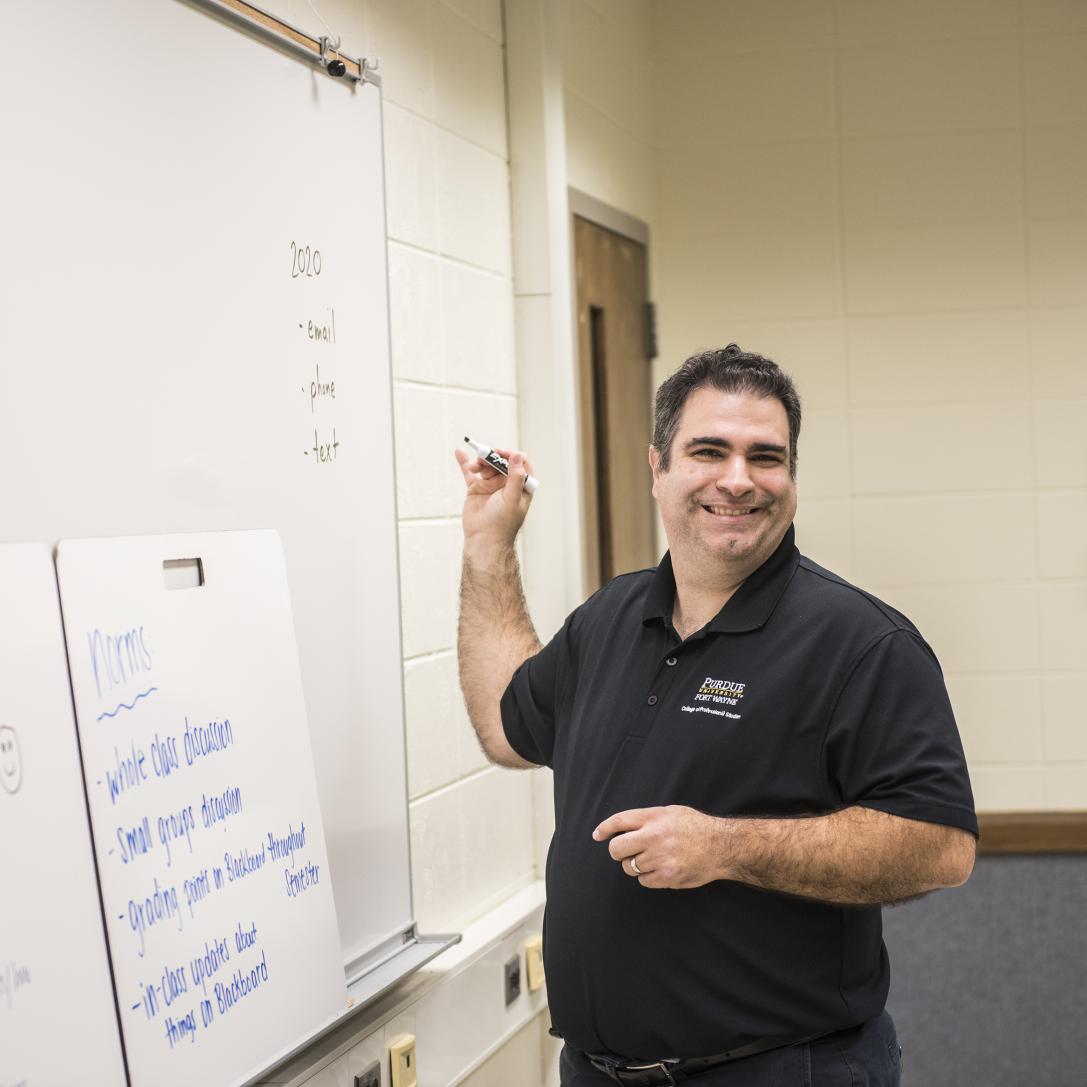
Info for Faculty and Staff
Center for Student COunseling
How to help.
Distressed students often have not sought counseling and may be unaware of the services available to them. Your role could be crucial in identifying and assisting students who are in distress so that you can refer them to the resources available to help them.



When to Refer
How will I know if a student needs help?
The following signs may indicate a need to refer a student to counseling services:
- Abrupt changes in behavior, including a dramatic decrease in academic functioning
- Increased isolation from others
- Noticeable changes in mood, such as depression, apathy, or irritability
- Poor attendance in class
- Sudden outbursts of anger
- Alcohol/drug misuse
- Marked change in personal hygiene/appearance
- Inappropriate crying
- Suicidal statement
Guidelines and Strategies
What protocol should I follow?
Here are some general tips to follow if you think you may be dealing with a student in distress:
- Be mindful of the student’s privacy
- Talk to the student
- Acknowledge how they are feeling
- Listen carefully, show concern and interest
- Avoid criticizing or sounding judgmental
- Offer support
- If you are unsure how serious the situation is, ask
- Normalize and contextualize the experience
- Suggest counseling services at the Center for Student Counseling as a resource and explain that the services they’ll receive are confidential
- If the student resists help and you are still worried, fill out a CARE Referral Form and consider contacting us here at the center to discuss your concerns
- If you ever feel unsafe, contact campus police or call 911 immediately


Faculty and Staff Resources
Faculty and Staff Resources
Frequently Asked Questions
Find the answers you need.
Take a look at some of the most frequently asked questions to find the answers you may be looking for. If you have any additional questions, please reach out to us.
Although it may feel intrusive or uncomfortable to address these personal issues with students, more often than not, students appreciate the effort. Tell the student you would like to speak with them about your concerns and ask the student to meet with you during office hours or some other time. When sharing your concerns, do not attempt to be the counselor, but rather, provide information and referral options regarding campus and community resources. You may even offer to walk the student to the counseling center during operating hours.
Definition of Distress
Behaviors that threaten to harm oneself or others, symptoms of psychosis, or becoming extremely withdrawn or depressed. These are often severe mental-health concerns that often constitute urgent or emergent situations.
Examples of Students in Distress
- Suicidal or homicidal statements (particularly those that indicate a specific plan and/or access to means)
- Making threats of physical violence
- Delusional thinking
- Experiencing hallucinations or disorientation
- Indications of a drug overdose
- Cutting or other self-injurious behavior
- Stalking
- Reports of sexual assault
- Bringing a firearm or other weapon to class
Take these simple steps to refer a student to our care:
- Provide the student with our phone number (260-481-6200) or direct them to our website for further information.
- Consider having the student call from your office.
- Walk the student to the center.
- Fill out a CARE Referral Form.
No. We are unable to allow anyone other than the student to make an appointment for counseling at the center. You can encourage the student to make an appointment.
- Let the student know that they should call the center at 260-481-6200 and identify the need for immediate assistance. A phone or in-person consultation will occur on the same day.
- If you wish to be certain the student makes the session, call the center while the student is in your office or walk the student to the center during our walk-in hours.
- If you consider the situation to be an emergency, or the student to be a harm to themselves or others, call University Police at 260-481-6827 or 911. Do not call the center, as this would cause a delay in attending to safety issues.
The counseling staff at the Center for Student Counseling welcomes your calls at 260-481-6200 at any time to consult with us regarding your concerns about your students. Counseling staff can offer suggestions and ideas about referral options, resources, and other ways to address your concerns. We are also happy to meet with you to discuss wellness, self-care, stress management, and mental-health training or presentations for your classes or departments.
We do not offer counseling services for faculty and staff at our center. Please see the information on the Employee Assistance Program (EAP). If you are interested in wellness coaching services, please contact our health coach, Lindsay Bloom.
SAMPLE SYLLABI STATEMENT FOR FACULTY
Student Mental Health
Your emotional wellness and mental health are important. Taking classes can be stressful. I recognize that you may also have significant responsibilities outside of academia, and that you are often pulled in multiple directions. I encourage you to consider developing realistic self-care activities that you can incorporate into your daily life. If you have a mental health disorder, are struggling with your mental health, your stress overwhelms your ability to cope with it, or you find yourself needing emotional support, please talk to someone. If you or someone you know is in a mental health crisis situation, call 911 or go to the local emergency room. Otherwise, please reach out to our Center for Student Counseling (CSC). All currently enrolled PFW and IUFW students have access to free counseling at the center. To make an appointment to talk with a counselor call 260-481-6200 or email [email protected]. You may also walk-in during operating hours if you need immediate assistance. The CSC is open 9:00am – 4:00pm on Mondays, Wednesdays, and Thursdays; 9:00am – 8:00pm on Tuesdays and 9:00am – Noon on Fridays. The CSC is located on the ground floor of Kettler Hall at the end of the corridor between the Department of Anthropology and Einstein Bros. Bagels, room G02. More information about the CSC can be found at www.pfw.edu/CSC